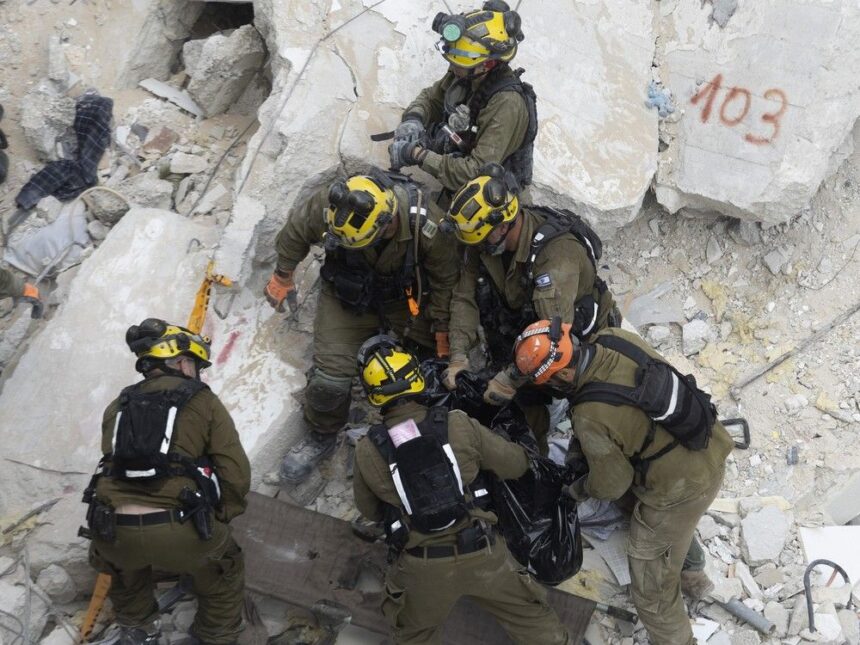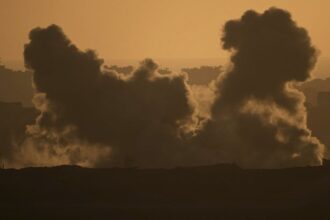In a dramatic escalation of Middle East tensions, Iran launched approximately 180 ballistic missiles at Israel Tuesday evening, marking the most direct confrontation between the two adversaries in decades. The barrage, which began shortly after 7:30 p.m. local time, resulted in 11 fatalities and left hundreds wounded as air raid sirens wailed across Israeli territory.
The assault represents Iran’s first direct military strike on Israeli soil from Iranian territory, a significant departure from Tehran’s longtime strategy of operating through proxy forces. Israeli defense officials confirmed that most missiles were intercepted by the country’s Iron Dome and Arrow defense systems, preventing what could have been a far more catastrophic outcome.
“This was a calculated attack designed to overwhelm Israel’s defensive capabilities,” said Dr. Jonathan Reichman, senior defense analyst at the Royal Military College of Canada. “Despite Iran’s claims of targeting military installations, the sheer volume and dispersion pattern of the missiles suggests civilian casualties were inevitable.”
According to Israeli military sources, the Iranian missiles targeted both military facilities and civilian infrastructure across central and southern Israel. Footage from Jerusalem and Tel Aviv showed residents rushing to bomb shelters as explosions illuminated the night sky. The attack paralyzed Ben Gurion International Airport as flights were diverted and departures halted.
Prime Minister Benjamin Netanyahu convened an emergency security cabinet meeting, declaring that “Iran has made a grave mistake” and promising a “significant response.” The United States, which had intelligence indicating an imminent attack, quickly condemned Iran’s actions and reaffirmed its commitment to Israel’s security.
“We’ve deployed additional military assets to the region,” said U.S. Secretary of Defense Lloyd Austin in a statement. “The United States stands ready to assist our Israeli allies in defending against further aggression.”
Tehran characterized the missile strike as retaliation for Israel’s ongoing operations in Gaza and Lebanon, as well as the assassination of Hamas political leader Ismail Haniyeh in Tehran and Hezbollah commander Hassan Nasrallah in Beirut. Iranian Supreme Leader Ayatollah Ali Khamenei warned of “further devastating consequences” should Israel respond.
The attack has sent oil prices surging, with Brent crude jumping 4.3% overnight as markets reacted to fears of a wider regional conflict. Financial analysts warn that sustained hostilities could disrupt global energy supplies and further destabilize an already fragile world economy.
“We’re witnessing the dangerous widening of what began as the Israel-Hamas conflict into a potential regional war,” noted Dr. Samira Khalidi, professor of International Relations at the University of Toronto. “The risk of miscalculation by either side now poses perhaps the greatest threat to regional stability since the 1973 Yom Kippur War.”
Canadian officials have urged the estimated 1,200 Canadian citizens currently in Israel to leave immediately while commercial options remain available. Global Affairs Canada has elevated its travel advisory to the highest level, advising against all travel to the region.
As Israel weighs its response options, ranging from targeted strikes on Iranian nuclear facilities to attacks on oil infrastructure, the international community faces a critical question: Can diplomatic intervention prevent this direct confrontation from spiraling into a catastrophic regional war that neither side can truly afford?










